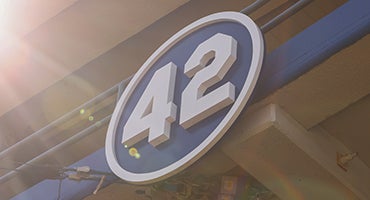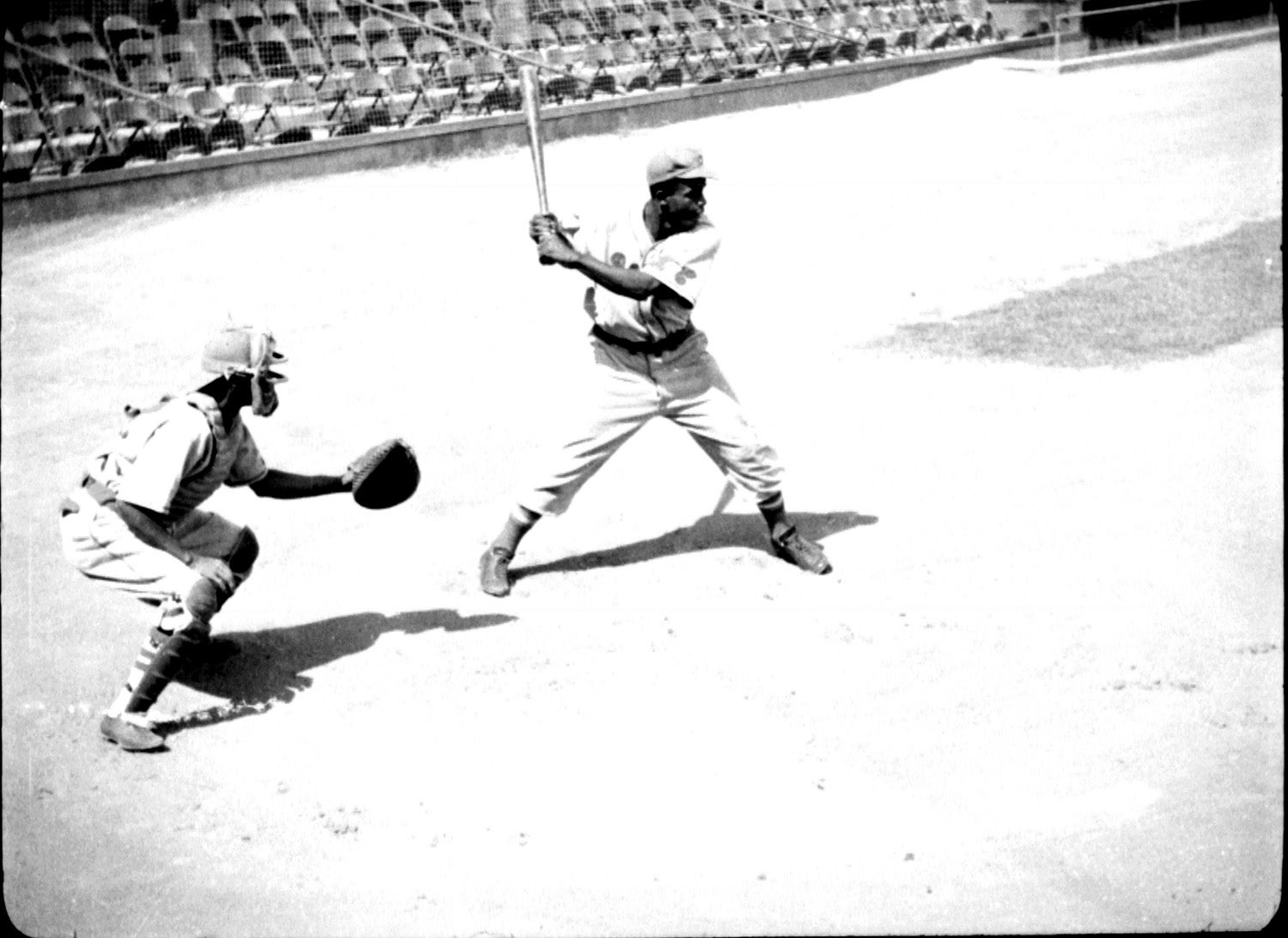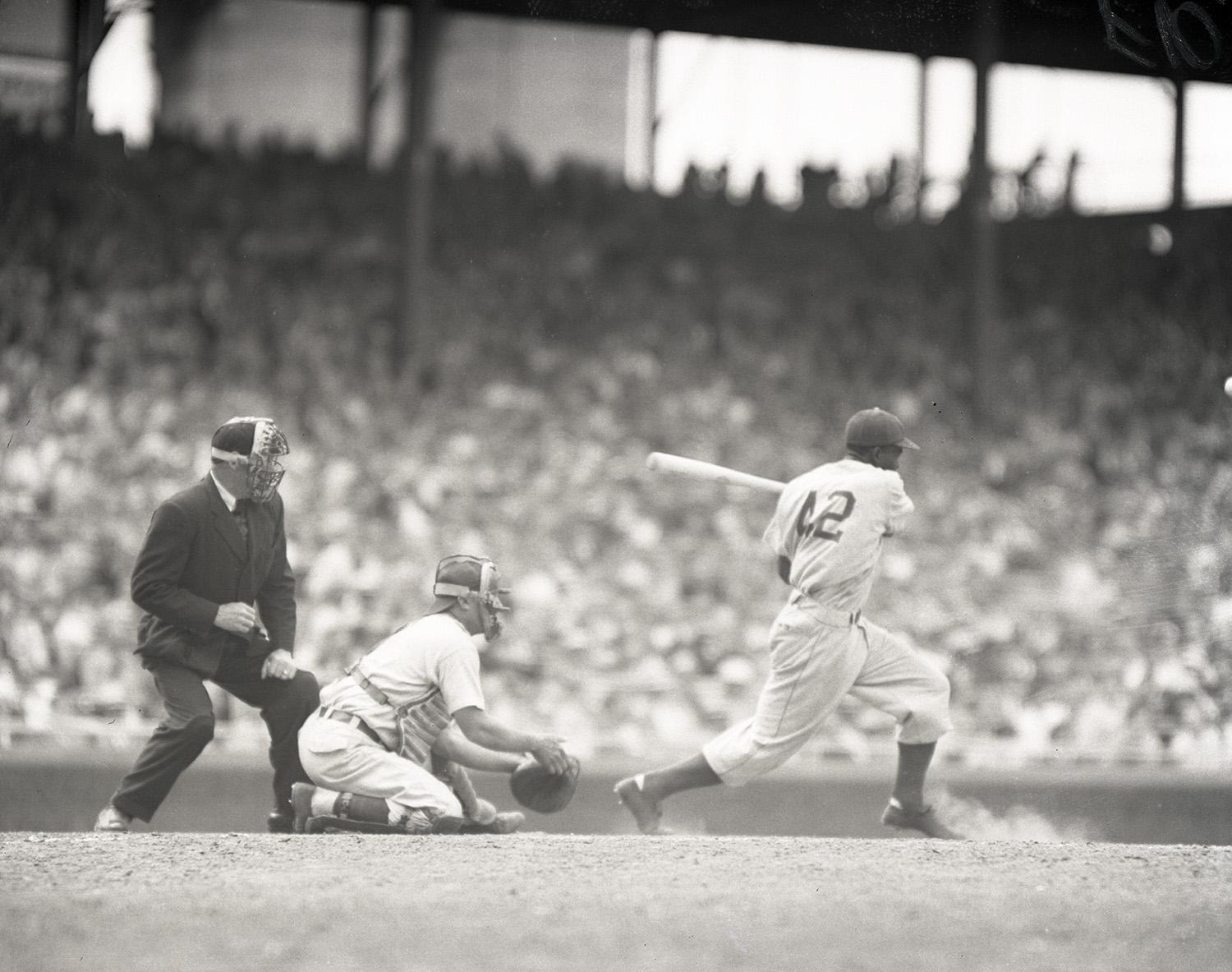- Home
- Our Stories
- Jackie Robinson retires following trade to Giants
Jackie Robinson retires following trade to Giants
Jackie Robinson’s incomparable big league career spanned 10 years with the Brooklyn Dodgers.
But on Dec. 13, 1956 – for a few fleeting moments – Robinson belonged to the Dodgers’ biggest rivals: The New York Giants.
That day, the Dodgers – coming off a season where they won their sixth National League pennant in Robinson’s 10 years with the club – traded baseball’s civil rights pioneer to the Giants in exchange for pitcher Dick Littlefield and $30,000.
But within hours, Robinson decided to retire rather than accept the trade.
He later drafted an official letter to Giants owner Horace Stoneham, informing him – on Chock Full o’ Nuts stationery – that he would be going to work for the coffee maker and ending his big league career.
“After due consideration, I have decided to request to be placed on the voluntary retired list as I am going to devote my full time to business opportunities that have been presented,” wrote Robinson in a letter dated Jan. 14, 1957, that is now preserved at the National Baseball Hall of Fame and Museum.
Two days later, National League president Warren Giles approved Robinson’s request to retire and signed his name to the document.
Robinson batted .311 over his 10 years with the Dodgers, winning the 1947 Rookie of the Year Award and the 1949 National League MVP. A six-time All-Star, Robinson – who became the first African-American player to appear in a modern big league game in 1947 – electrified baseball with his daring base running and clutch hitting.
He led the Dodgers to the World Series six times, winning the 1955 World Series with Brooklyn. But it was a non-pennant winning season – 1951 – where the Giants and the Dodgers battled down the stretch and in a legendary three-game playoff that cast a spell on the nation. The Giants eventually won the playoff on Bobby Thomson’s walk-off home run.
Robinson, captured in a memorable photo, was one of the last players to leave the field at the Polo Grounds following Thomson’s heroics.
“I assure you that my retirement has nothing to do with my trade to your organization,” Robinson said in the letter.
But for Brooklyn fans, the move prevented the unthinkable: Seeing Robinson in a uniform other than Brooklyn’s.
Robinson was elected to the Hall of Fame in 1962.
Craig Muder is the director of communications for the National Baseball Hall of Fame and Museum
Related Stories

April 15, 1997: Jackie Robinson’s Number Retired

Robinson’s Royal history

Jackie Robinson, circa 1946

April 15, 1997: Jackie Robinson’s Number Retired

Robinson’s Royal history





